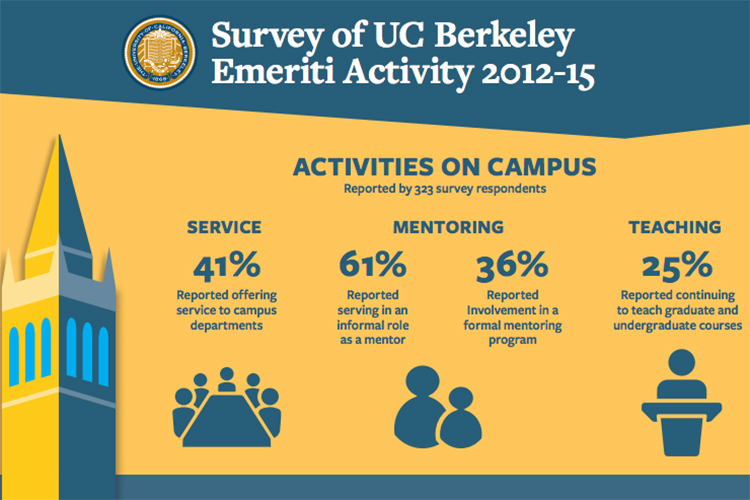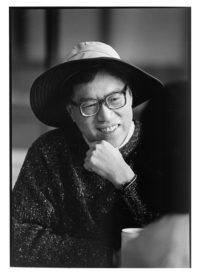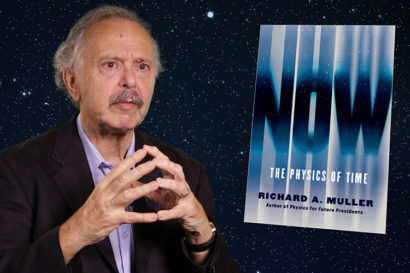Emeriti, yes, but still working to stay connected
Emeriti are essential in the campus’s ongoing success, playing a wide range of roles, from teaching and mentoring to publishing articles and fundraising.

October 11, 2016
It takes a village to keep UC Berkeley the top public university in the world. Emeriti are essential in the campus’s ongoing success, playing a wide range of roles, from teaching and mentoring to publishing articles and fundraising.
Every three years, the Council of UC Emeriti Associations collects data to keep track of the many ways faculty stay involved in their fields and contribute to their campus communities after they retire. The most recent survey, which covered 2012 to 2015, drew responses from 1,619 UC emeriti, including 323 at Berkeley.
Professor of physics emeritus Richard Muller, who for many years taught a popular introductory course, “Physics for Future Presidents,” is one of the 36 percent of Berkeley emeriti who have published at least one book in so-called retirement. In Muller’s latest, NOW: The Physics of Time, he proposes a new theory: Time is expanding because space is expanding. “The new physics principle is that space and time are linked,” he told Berkeley News last month. “When you create new space, you will create new time.”
The survey also found that more than 60 percent of Berkeley emeriti served as mentors on campus.

George Chang, an associate professor emeritus, began teaching at Berkeley in 1970. (Photo by Peg Skorpinski)
George Chang, an associate professor emeritus of nutritional science and toxicology, lived in a three-bedroom apartment in Unit 2’s Towle Hall for eight years as part of Berkeley’s Resident Faculty Program, which grew out of a campuswide effort to bridge the social gap between students and educators. During that time, he taught tai chi and hosted a newspaper-reading activity he called “Papers with the Prof.” He even started a Facebook study group. Read about his experience in Berkeley News.
In addition, 25 percent of the respondents reported continuing to teach undergraduate and graduate courses, and 75 percent had published one or more journal articles in the survey period. The Berkeley respondents collectively brought in $70 million for research and donated $26.6 million.
Leaders of the emeriti council say information collected by the surveys is helpful in their emeriti advocacy efforts.
See the survey summary online. Learn more about the UC Berkeley Emeriti Association.
